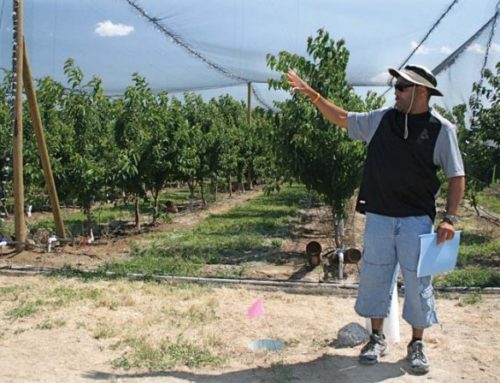Published January 15, 2011
The integrated fruit production certification program, a set of guidelines for horticultural practices, is the industry standard in Italy, adopted by nearly all of the apple growers. But recently, IFP has become a national program that is subject to approval by legislators in Rome, and some fear the program is now at risk of becoming politicized and targeted by environmental activists.
Ninety-four percent of the growers follow IFP, 5 percent are certified organic, and 1 percent of the fruit is sold with neither certification. The concept of IFP in Italy was first discussed by a working group of apple industry members in the South Tyrol region in the late 1970s. Today, every province in Italy has its own set of guidelines specific to local conditions and pest issues, but it’s become a national program controlled by Rome, said Paul Wierer of Agrios, a private association that runs the IFP program in South Tyrol. Wierer is responsible for quality control of apples in the Alto Adige province. Every province still develops its own guidelines, but the program must be approved annually by the local and national governments, he explained.
In the near future, a national IFP label will be developed, although Wierer noted that South Tyrol already uses a ladybird beetle label on apple boxes to denote that fruit meets the certification program.
A move under way at the national level is a new IFP restriction that would constrain growers to use only four active ingredients of pesticides during the year. The active ingredient restriction was lauded by Greenpeace’s Manfred Santen of Hamburg, Germany, during a panel discussion at the Interpoma conference in Bolzano, but it has outraged growers and extension agents. “There’s no scientific rationale behind limiting pesticides to four active ingredients,” said apple grower Stefan Pircher of Leifers in the South Tyrol region.
Greenpeace activist Santen questioned why growers need to use a multitude of different pesticides to produce crops. He stated that Greenpeace believes consumers are at risk from exposure to multiple pesticide residues on food, even if levels are low. “If an apple is sprayed with multiple chemical substances, we think it’s advisable not to eat that apple,” he said during Interpoma.
In related action, the Italian parliament recently enacted a requirement that 25 percent of government food purchases, such as those for school lunches, must come from organic sources.
IFP specifics
The original goal of the IFP program—before politics—was to ensure that growers use environmentally friendly horticultural practices, a minimal amount of chemicals, produce high quality fruit, and remain economically viable.
IFP guidelines cover a whole host of horticultural management issues, from matching site to variety and using certified nursery stock to fertilization, irrigation, and crop protection chemicals and their application, to postharvest chemicals. Growers must choose from a list of pesticides that are permitted, as well as follow a specified maximum number of applications that are allowed. Pesticide residues on the fruit after harvest must be no more than half of the maximum limit allowed by government.
Growers must attend continuing education each year and they pay an annual flat fee of around $30 as well as an acreage fee of $7.50 per acre to Agrios for quality control and program management.
Growers keep a record of their horticultural activities, bringing their handbook to the packing house for inspection before and after harvest. Ten percent of the growers in the program are randomly audited each year. If a problem is discovered during an audit, four levels of enforcement are initiated that range from a warning to exclusion from the program for the year. Repeated violations can result in the grower losing the equivalent of nearly $300 per acre because the fruit cannot be sold under the IFP label.
Fruit that doesn’t meet IFP requirements can’t be certified as GlobalGAP, a certification program accepted globally that is founded on Good Agricultural Practices.



Leave A Comment